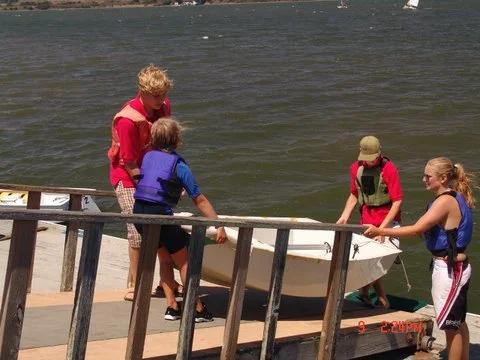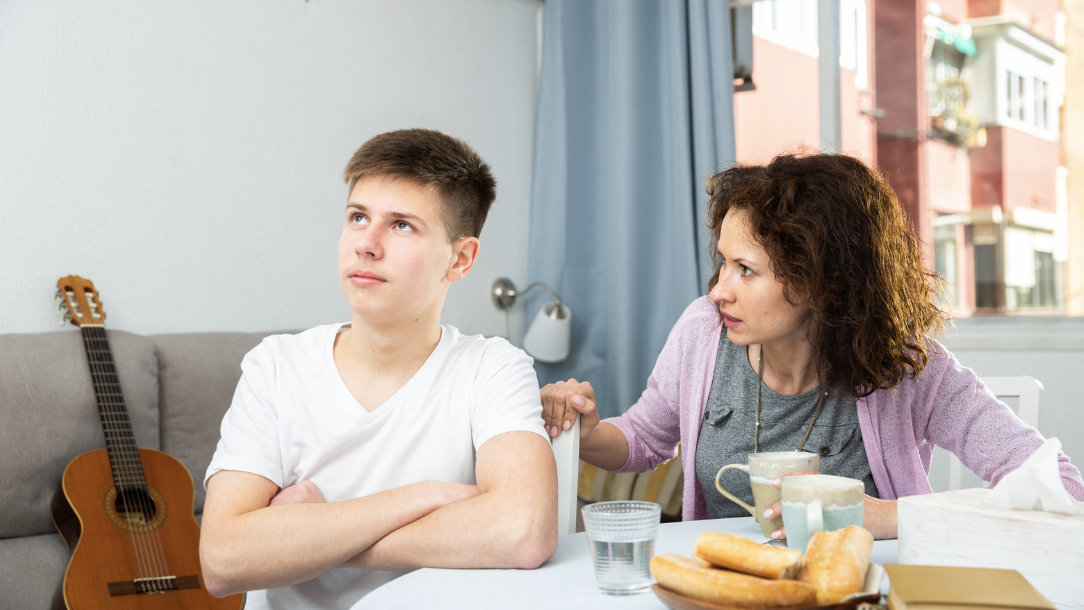With the stress of divorce and going back and forth between two households, divorce dads often worry about building resilience in their kids. The good news is that becoming confident and competent are both skills that you can build easily in your kids.
Read MoreParenting on your own means you don’t have a partner to fall back on. Kids with only one parent in the home tend to be needier and less confident in their parent. That makes it even more important to pull together as a family and have structures to help things run smoothly. My four-step family meeting plan takes care of logistics, but more importantly also provides kids the emotional support and connection they need to feel safe.
Read MoreWant to have fun and cooperation from your kids? If you are a single or divorced dad, the first thing you need are the systems and routines that will support a smooth running household. That’s what frees you up for connection activities that strengthen the family bonds.
Read MoreAs a parent coach, I see parents wishing their children would take more initiative—especially when it comes to contributing to the household. Teaching kids to notice what needs to be done around the home doesn’t have to take years to cultivate. Read about my “Chore 1, Chore 2 and Find One More to Do” method.
Read MoreSleep is foundational. Without it, kids have a harder time regulating their emotions, focusing in school, handling stress, and showing up as their best selves. And as frustrating as sleep resistance can be, there are real reasons behind it—and real ways to turn things around. Parenting coaching gives you ways to solve this problem without losing your relationship with your teens.
Read MoreOpen, honest communication is one of the most powerful tools a family can have—but let’s be real: it doesn’t always come naturally.
Let’s walk through four essential ways to create a home where everyone feels heard—and relationships grow stronger.
Read MoreEvery parent walks the tightrope between giving kids enough freedom to grow—and keeping enough control to keep them safe and on track. Lean too far in either direction, and things can start to wobble—chaos on one side, resentment on the other. So how do you find the balance?
Read MoreWatching a bright child lose motivation can be heartbreaking. Understand the deeper causes (including your role!), avoid fueling the apathy, and reignite your child’s drive—without nagging, battles, or fear about the future.
Read MoreFeeling overwhelmed by screen time battles at home? Discover why tech limits often backfire—and what to do instead. Learn simple, effective strategies to create a calm, connected, and tech-balanced family life without constant conflict.
Read MoreThink your child’s backtalk or defiance means trouble ahead? It might actually be a cry for connection. Learn how a parenting coach can help you decode misbehavior, respond with empathy, and foster mutual respect—without fear-based discipline. Discover what your child’s behavior is really trying to tell you.
Read MoreDiscover how parenting coaching helps you build open, honest conversations with your teen—so you can stay connected, reduce anxiety, and keep them safe from risky behaviors. Learn how proactive communication supports both your peace of mind and your child’s well-being.
Read MoreStruggling with time management as a parent? A parenting coach can help you create routines and systems that reduce stress, decision fatigue, and daily chaos—giving you more time to truly connect with your kids. Learn how small changes can lead to big relief.
Read MoreParenting isn’t just about guiding your child—it’s about evolving through major transitions yourself. From becoming a parent to sending your child off to college, each stage brings emotional shifts. Learn how to navigate these changes with confidence.
Read MoreOne of the most important things we do as parents is set the tone for a happy, harmonious home. Often, as a parent coach, that is where I start when I am working with a client. Parents might come to me, say, to learn how to deal with their 6-year-old’s violent outbursts. Rather than starting with my focus on the child, I first lay the groundwork for creating a more loving home.
Love is the glue that holds us all together, and when it is palpably present, everything in the house feels easier.
Read MoreRaising resilient, self-confident kids is more important than ever in today’s world. A parenting coach can help you nurture emotional health, build independence, and foster resilience in your child. Learn how to validate feelings, encourage problem-solving, and step back to let your child grow. Small changes in your parenting can make a big impact!
Read MoreStruggling to set boundaries that stick without damaging your connection with your child? Let’s explore how to balance structure and flexibility to create a peaceful, cooperative home. Through real-life coaching stories, you'll discover practical strategies for holding limits with confidence while ensuring your child feels heard and valued. Read the full blog to learn how parenting coaching can help you find the perfect balance!
Read MoreWhat’s your parenting style? With so many terms like permissive, authoritarian, and authoritative parenting, it can get overwhelming fast! This blog breaks down classic and modern parenting styles, explores how culture and circumstances shape them, and helps you discover what works best for your family. Struggling to align your parenting style with your child's needs? Let’s sort it out together!
Read MoreStruggling to align with your parenting partner? Learn how a parenting coach can help you create a united front. This blog explores common parenting conflicts, the impact of tension on kids, and practical strategies like active listening, trust, and structured routines to bring harmony to your home. Discover how to parent as a team and strengthen your family bond.
Read MoreDiscover how parenting coaching can help you master key executive functioning skills—goal setting, time management, and self-discipline—to create a more harmonious home. Learn practical tips for lasting changes.
Read MoreDiscover how parenting coaching can transform your family's dynamics. Learn why it's the best first step to improving your parenting skills, building better relationships with your kids, and fostering positive changes at home.
Read More




















